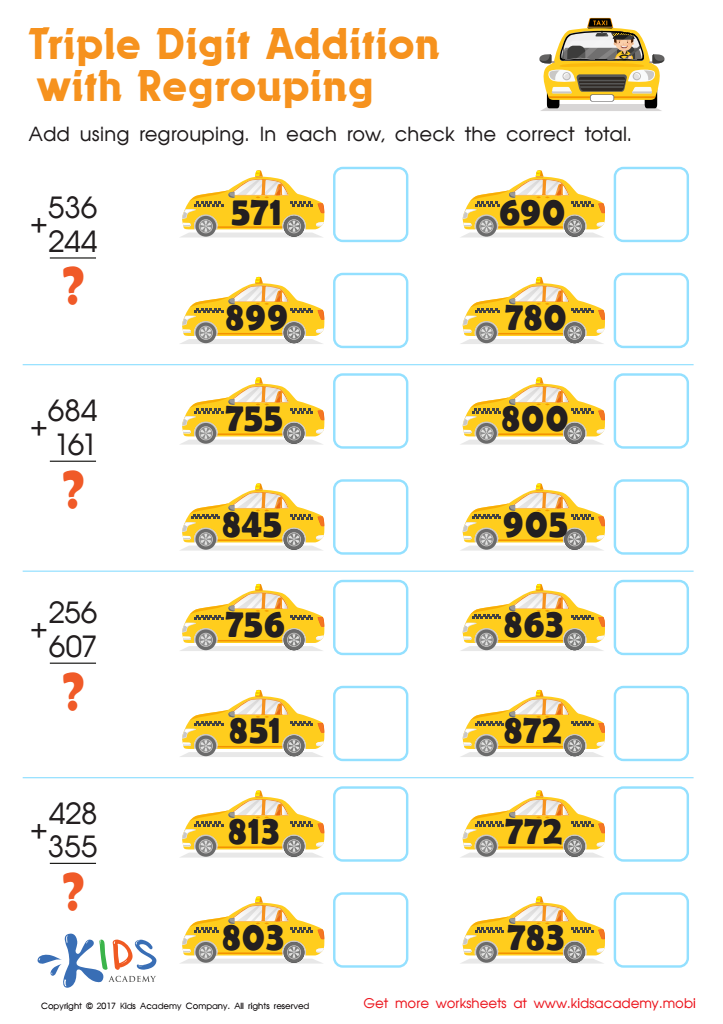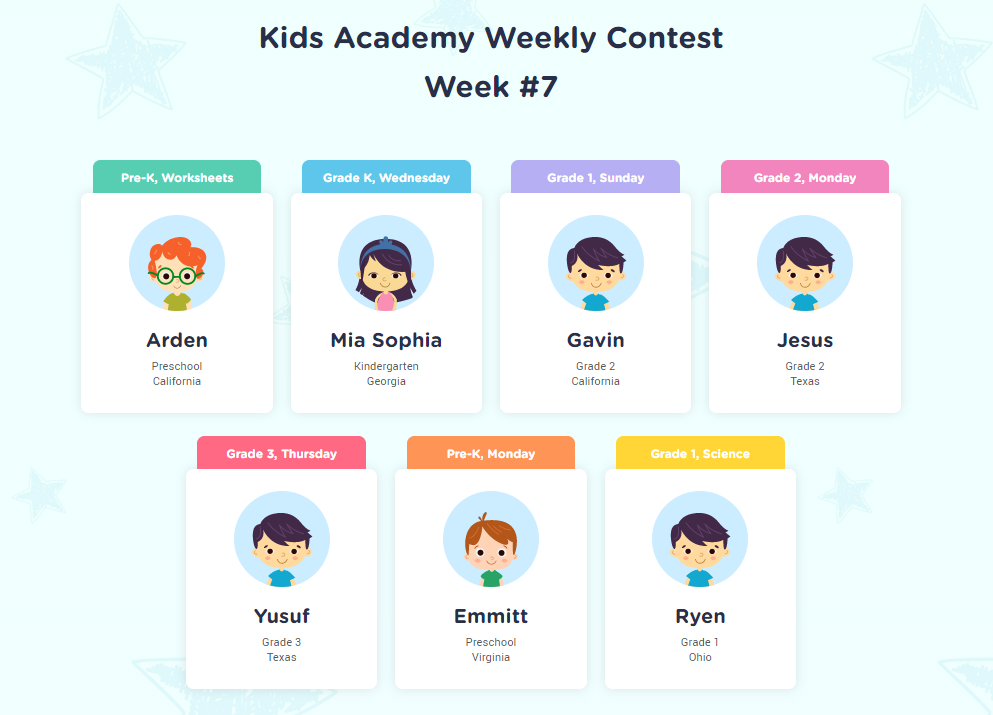Boosts numerical fluency Worksheets for Kids
1 filtered results
-
From - To


Triple Digit Addition with Regrouping Worksheet
Question/Answer
Why is the Boosts numerical fluency skill important for Grade 3 students?
The Boosts numerical fluency skill is crucial for Grade 3 students as it lays the foundation for advanced mathematical concepts. It enhances their ability to quickly and accurately perform basic arithmetic operations, understand number relationships, and solve problems efficiently. This skill is essential for their success in higher grades and everyday life, fostering confidence and competence in mathematics.
What does the Boosts numerical fluency skill mean when it comes to Grade 3 Addition & Subtraction learning?
Boosting numerical fluency skill in the context of Grade 3 Addition & Subtraction means enhancing the ability to efficiently and accurately add and subtract numbers. It focuses on developing quick recall of basic facts and the capacity to apply strategies effectively, helping students solve addition and subtraction problems with greater ease and confidence.
How to train the Boosts numerical fluency skill in Grade 3 students learning about Addition & Subtraction?
To train Grade 3 students' Boosts numerical fluency in Addition & Subtraction, incorporate daily practice of mental math, use flashcards for quick recall, engage in math games that emphasize speed and accuracy, and apply real-world scenarios to make abstract concepts tangible. Encourage peer teaching to reinforce understanding and confidence in using these skills.

 Assign to My Students
Assign to My Students
















